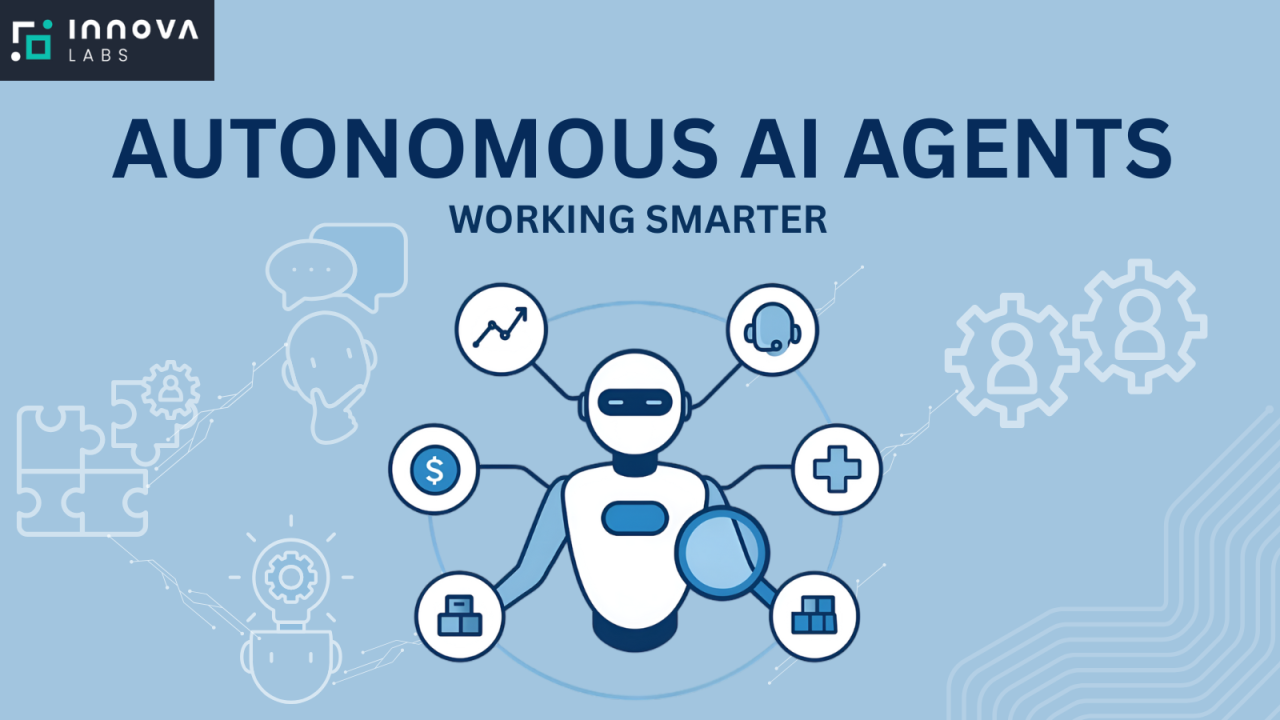Discover how startups are using autonomous AI teams to supercharge growth, reduce costs, and operate 24/7. Learn how AI agents are reshaping modern startup culture and productivity.
Introduction: Startups and the AI Advantage
Startups have always been about speed. The ability to move fast, break things, and build better solutions is what separates a unicorn from a footnote. In today’s rapidly evolving tech landscape, one force is helping startups accelerate like never before — autonomous AI teams.
These aren’t just chatbots or analytics tools. They’re full-fledged AI-powered agents capable of performing complex tasks: writing code, managing marketing campaigns, generating content, handling customer service, and even making strategic decisions — all without human supervision.
It’s not a trend. It’s a quiet revolution — and startups that adopt autonomous AI teams early are pulling ahead.
In this article, we’ll explore how startups are leveraging autonomous AI to scale faster, operate leaner, and build smarter businesses in 2025 and beyond.
Table of Contents
-
What Are Autonomous AI Teams?
-
Why Startups Are Embracing AI Agents
-
Key Areas Where Startups Deploy Autonomous AI
-
Real-World Startup Success Stories
-
The 24/7 Advantage of Autonomous AI Teams
-
Cost Reduction and Efficiency at Scale
-
How AI Teams Are Shaping Startup Culture
-
Limitations and Ethical Considerations
-
Building a Human + AI Hybrid Workforce
-
Future Outlook: Autonomous Startups?
-
Conclusion: Adapt or Be Disrupted
1. What Are Autonomous AI Teams?
An autonomous AI team is a collection of AI agents or software systems that work independently or semi-independently to complete tasks typically handled by human teams. These AI agents can plan, execute, analyze, and iterate — often better and faster than human counterparts.
They include:
-
AI developers that write and debug code
-
AI marketers that generate SEO-optimized campaigns
-
AI designers that create brand assets
-
AI support bots that resolve customer issues
-
AI analysts that crunch data and generate insights
Platforms like Cognition’s Devin, AutoGPT, AgentOps, and OpenAgents are already powering these capabilities.
2. Why Startups Are Embracing AI Agents
Startups face three main constraints:
-
Limited capital
-
Small teams
-
Tight timelines
Autonomous AI teams help overcome all three.
-
Cost-effective: Replacing or augmenting human workers with AI drastically reduces payroll and operational costs.
-
Scalable: AI can scale instantly without hiring or onboarding.
-
Speed: AI doesn’t sleep. It works 24/7 with no downtime.
In essence, autonomous AI is giving startups the firepower of a Fortune 500 company, without the overhead.
3. Key Areas Where Startups Deploy Autonomous AI
Here’s how real startups are using AI agents to power their operations:
a. Software Development
AI dev agents can:
-
Write boilerplate code
-
Debug errors
-
Suggest architecture improvements
-
Perform unit testing
b. Marketing and SEO
AI marketing agents:
-
Generate blog content, social posts, and email copy
-
Optimize landing pages for SEO
-
Analyze performance metrics and iterate campaigns
c. Customer Support
AI agents handle:
-
Real-time chat and email responses
-
Ticket management
-
FAQ resolution
-
Sentiment analysis
d. Operations and Finance
AI agents:
-
Manage invoicing and bookkeeping
-
Generate financial forecasts
-
Automate reporting
4. Real-World Startup Success Stories
Let’s look at a few examples:
✅ Lamini AI (DevOps-as-a-Service)
They use autonomous AI agents to manage backend deployments, monitor performance, and flag errors — reducing manual DevOps by 70%.
✅ Tavus (AI Video Messaging)
They use AI to automate personalized video generation for customer onboarding and sales, replacing the need for a full creative team.
✅ AirOps (Marketing + Operations)
Their AI handles campaign testing, content generation, and internal reporting, enabling their 7-person team to operate like a 50-person org.
These startups are not using AI just as tools — they’re hiring them as digital employees.
5. The 24/7 Advantage of Autonomous AI Teams
Human teams work 40-hour weeks. AI teams never log off.
Startups using autonomous agents benefit from:
-
Faster product cycles
-
Real-time iteration
-
Global responsiveness
Imagine launching a product, receiving feedback overnight, and having version 2.0 live by the next morning — without anyone working late.
That’s the round-the-clock edge autonomous AI delivers.
6. Cost Reduction and Efficiency at Scale
Startups can burn through capital fast. AI teams stretch those dollars.
Here’s how:
-
No hiring costs
-
No healthcare, insurance, or taxes
-
No need for offices or physical resources
-
Minimal onboarding time
An autonomous AI agent might cost $100/month, but deliver the output of a $5,000/month employee.
It’s not about replacing humans — it’s about increasing leverage.
7. How AI Teams Are Shaping Startup Culture
The introduction of AI teammates is reshaping how teams collaborate and innovate.
New startup cultures are emerging:
-
Agile + Autonomous: Workflows built around rapid, automated execution
-
Async-first: With AI running overnight, human teams adjust to review and iterate, not initiate
-
Data-driven by default: AI agents surface insights constantly, driving decisions from day one
Founders are learning to delegate to AI like they would to human staff — assigning tasks, reviewing outputs, and managing performance.
8. Limitations and Ethical Considerations
Despite the promise, autonomous AI teams aren’t perfect.
Key limitations include:
-
Context gaps: AI can miss nuance or human emotion
-
Security concerns: Sensitive data handling requires strict safeguards
-
Creativity: While AI can mimic creativity, it still struggles with originality
-
Bias and misinformation: If not trained properly, AI can reflect harmful stereotypes or false data
Ethical use of AI means human oversight remains essential, especially in customer-facing roles or mission-critical tasks.
9. Building a Human + AI Hybrid Workforce
The most successful startups aren’t going all-in on AI — they’re creating hybrid teams where humans and machines collaborate seamlessly.
Tips for founders:
-
Assign repeatable tasks to AI (e.g., reports, code generation)
-
Keep strategic and emotional roles for humans (e.g., leadership, negotiations)
-
Use AI to augment creativity, not replace it
-
Train employees to become AI managers, not just task doers
This shift creates a super-team: efficient, creative, and always-on.
10. Future Outlook: Autonomous Startups?
In the near future, we may see:
-
Startups with no full-time human employees
-
Autonomous micro-SaaS companies run by AI
-
Founders launching MVPs in days, iterated entirely by bots
-
Investor-grade pitch decks generated by AI and refined by GPT-based co-founders
The “company” of the future may not look like a company at all — just an idea, some code, and a fleet of agents spinning up value.
It’s already happening in some stealth-mode startups across Silicon Valley, Bangalore, and Tel Aviv.
11. Conclusion: Adapt or Be Disrupted
Autonomous AI teams aren’t a passing trend — they’re the future of work. For startups, the message is clear:
-
Embrace AI early
-
Train your team to collaborate with machines
-
Automate to scale, not to replace
-
Balance cost-cutting with creativity
In the next few years, the startups that scale fastest won’t be the ones with the most funding — but the ones who master intelligent automation.
12. Strategic AI Adoption: Not Just Plug-and-Play
One of the biggest misconceptions about autonomous AI teams is that they’re simple plug-and-play solutions. In reality, strategic integration is essential for AI to truly create leverage.
Startups that succeed with AI think of it not as a tool — but as a core teammate. This means:
-
Mapping tasks to agents: Start with repetitive, time-consuming tasks like lead generation, invoicing, or basic customer support.
-
Training agents on your data: Many AI agents perform better when fine-tuned with company-specific knowledge (docs, databases, customer history).
-
Building AI into workflows: Successful startups integrate AI into Slack, Notion, CRMs, and project management tools like ClickUp or Trello.
-
Iterating based on feedback: Just like human teammates, AI agents improve when you guide their outputs and adjust parameters regularly.
The goal isn’t to fully automate immediately — it’s to co-evolve alongside AI systems until they become irreplaceable members of your team.
13. The Investor Perspective: Betting on AI-First Startups
In the venture capital world, startups that actively use or build with AI agents are attracting heightened attention.
Why investors love AI-powered startups:
-
Better margins: AI teams drastically reduce burn rates.
-
Faster product-market fit: With rapid iteration, startups can test and adapt at unprecedented speed.
-
Scalability: AI-driven startups often scale without proportional increases in headcount or costs.
-
Innovation: Autonomous teams unlock new business models and products that would be impossible with human-only teams.
As a result, VCs now ask:
“How are you using AI in your operations?” — not just “Are you building with AI?”
Startups that can show proven productivity from AI agents are seen as leaner, more resilient, and better equipped for volatile markets.
14. The New Founder Mindset: Managing Digital Talent
A quiet shift is happening in the founder community. Today’s successful startup leaders are no longer just engineers or sales experts — they’re AI managers.
This means:
-
Understanding how to assign work to digital agents
-
Learning prompt engineering and agent orchestration
-
Building systems where humans and machines operate in sync
-
Tracking agent output metrics, just like team KPIs
Tools like ChatGPT Team, Devin (Cognition), and AutoGen Studio are giving founders dashboards to manage AI contributors like employees — with task logs, performance feedback, and version control.
The startup CEO of 2025 isn’t just a team leader — they’re a human-AI ecosystem architect.
15. From MVP to IPO: How AI Compresses the Startup Lifecycle
Traditionally, it took 12–18 months for a startup to:
-
Build an MVP
-
Test in-market
-
Get user feedback
-
Pivot or scale
With AI teams, that timeline can shrink to weeks or even days. For example:







